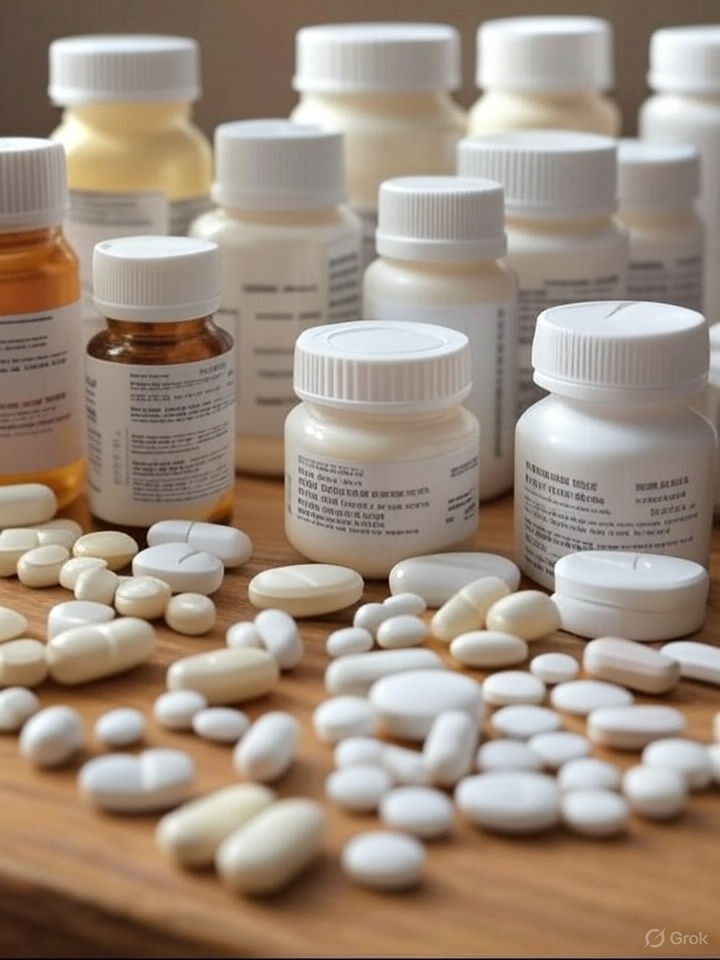The Impact of Artificial Hormone Replacement on the Reputation of Bioidentical Hormones and Patient Symptoms/Risks
- Dr. Miranda

- Jul 22, 2025
- 4 min read

Hormone replacement therapy (HRT) has been a vital treatment for hormonal imbalances, particularly during menopause, andropause, or endocrine disorders. However, the history of artificial hormone replacement therapies has cast a long shadow over bioidentical hormones, leading to widespread mistrust and patient suffering due to untreated or poorly managed hormonal imbalances. This blog explores how artificial hormones have damaged the reputation of bioidentical hormones, the consequences of low hormone levels, and the risks of inappropriate hormone types or levels.
Artificial Hormones and the Stigma on Bioidentical Hormones
In the mid-20th century, artificial hormone therapies like synthetic estrogens (e.g., Premarin) and progestins (e.g., Provera) became popular for managing menopausal symptoms, low testosterone, and other hormonal issues. These synthetic hormones, derived from non-human sources or chemically altered, were not identical to human hormones. While they provided symptom relief for many, the 2002 Women’s Health Initiative (WHI) study revealed serious risks, including increased chances of breast cancer, heart disease, stroke, and blood clots. The fallout from these findings created a public and medical backlash against all hormone therapies, including bioidentical hormone replacement therapy (BHRT).
Bioidentical hormones, which are chemically identical to human hormones (e.g., estradiol, progesterone, testosterone), were unfairly swept into this controversy. Despite their closer alignment with the body’s natural hormones, the lack of distinction in public discourse and media coverage led to widespread skepticism. Many patients and healthcare providers began avoiding hormone therapy altogether, leaving countless individuals to suffer from low hormone levels without adequate treatment.
The Consequences of Low Hormone Levels
When hormonal deficiencies are left untreated or undertreated due to fears stemming from artificial HRT’s reputation, patients face significant health challenges. Low levels of key hormones like estrogen, progesterone, and testosterone can lead to:
Menopausal and Andropausal Symptoms:
Women: Low estrogen and progesterone can cause hot flashes, night sweats, vaginal dryness, mood swings, anxiety, depression, and cognitive difficulties, severely impacting quality of life.
Men: Low testosterone levels may result in fatigue, reduced libido, erectile dysfunction, muscle loss, and irritability.
Bone Health:
Estrogen and testosterone play critical roles in maintaining bone density. Low levels increase the risk of osteoporosis, leading to fragile bones and a higher likelihood of fractures.
Cardiovascular Health:
Estrogen supports heart health by maintaining healthy cholesterol levels and blood vessel function. Low estrogen levels can elevate the risk of heart disease, particularly in postmenopausal women.
Low testosterone in men is linked to increased cardiovascular risks, including higher rates of metabolic syndrome.
Mental Health and Cognitive Function:
Hormonal deficiencies are associated with mood disorders, anxiety, depression, and cognitive decline. For example, low estrogen can impair memory and concentration, while low testosterone may contribute to reduced motivation and mental fog.
Metabolic and Physical Health:
Low hormone levels can lead to weight gain, insulin resistance, and reduced muscle mass, increasing the risk of diabetes and frailty.
These symptoms and complications highlight the importance of addressing hormonal deficiencies, yet the stigma surrounding hormone therapy often leaves patients undertreated or untreated, prolonging their suffering.

The Risks of High Levels of the Wrong Hormone Type
Just as low hormone levels can cause harm, high levels of inappropriate or synthetic hormones can lead to significant health risks. Artificial hormones, such as those used in early HRT, differ from human hormones in structure and function, leading to unpredictable effects on the body. For example:
Synthetic Estrogens (e.g., Premarin): These are derived from equine sources and contain compounds not naturally found in humans. High levels can overstimulate estrogen receptors, increasing the risk of breast and endometrial cancers, as seen in the WHI study.
Synthetic Progestins (e.g., Provera): Unlike natural progesterone, progestins can disrupt the body’s hormonal balance, contributing to cardiovascular issues, mood disturbances, and blood clots.
Imbalanced Hormone Ratios: High levels of one hormone (e.g., estrogen) without adequate balancing hormones (e.g., progesterone) can lead to conditions like estrogen dominance, which may cause weight gain, mood swings, and increased cancer risk.
In contrast, bioidentical hormones, when properly dosed and monitored, are designed to mimic the body’s natural hormones, reducing the risk of these adverse effects. However, the fear of “hormone therapy” in general has led to underutilization of BHRT, leaving patients with low hormone levels and worsening symptoms.
Patient Symptoms/Risks and the Path Forward
The conflation of artificial and bioidentical hormones has caused significant patient suffering. Many individuals with hormonal deficiencies avoid treatment due to fear, misinformation, or lack of access to knowledgeable providers. This has led to a reliance on non-hormonal treatments, such as antidepressants, sleep medications or anxiolitics, which will not fully address the underlying hormonal imbalances.
To address this issue, the medical community and patients must differentiate between artificial and bioidentical hormones. Key steps include:
Education and Awareness:
Patients and providers need clear information about the differences between synthetic and bioidentical hormones. Public health campaigns and medical training should emphasize the safety and efficacy of BHRT when properly managed.
Personalized Treatment:
BHRT should be tailored to individual needs, with regular monitoring of hormone levels to avoid under- or over-treatment. This ensures optimal outcomes and minimizes risks.
Research and Advocacy:
Continued research into the safety and benefits of BHRT can help rebuild trust. Advocacy from healthcare providers and patient groups can counter the lingering stigma from artificial HRT studies.
Access to Care:
Expanding access to qualified practitioners who specialize in BHRT can help patients receive appropriate treatment, reducing the burden of untreated hormonal deficiencies.
Conclusion
The tarnished reputation of artificial hormone replacement therapies has unfairly undermined the credibility of bioidentical hormones, leaving many patients to suffer from low hormone levels and related risks/complications. The consequences of hormonal deficiencies—ranging from menopausal symptoms to osteoporosis, neurologic and cardiovascular risks—are significant yet fear and misinformation have hindered access to effective BHRT. Meanwhile, the risks of high levels of synthetic hormones highlight the importance of using bioidentical hormones that align with the body’s natural physiology. By promoting education, personalized care, and further research, we can restore confidence in BHRT and alleviate the suffering of those with hormonal imbalances.




Comments